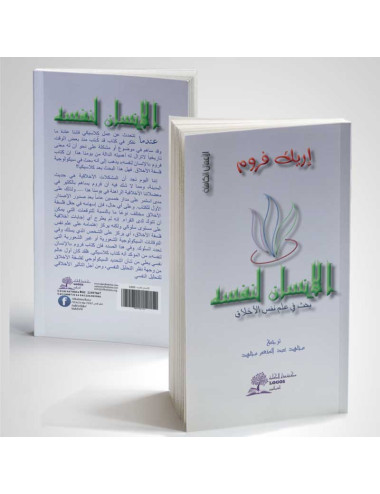The History of Christian Thought
Why would you read about the history of Christian thought? If you are Christian yourself, it helps you to understand about thinkers and the faith of the generations.
0.124 kg - 2.348 kg
Why would you read about the history of Christian thought? If you are Christian yourself, it helps you to understand about thinkers and the faith of the generations.
An examination of the Old Testament and later Jewish writings explores the evolution of the basic concepts of God, Man, history, sin, and repentance, and demonstrates the relevance of traditional beliefs in the contemporary world
A classic in its own time...The original self-help treatise that has inspired countless numbers of men and women throughout the world. Learn how love can release hidden potential and become life's most exhilarating experience. In this fresh and candid work, renowned psychoanalyst Erich Fromm guides you in developing your capacity for love in all its aspectsromantic love, love of parents for children, brotherly love, erotic love, self-love, and love of God. Read by a professional narrator...
The thesis of the book is that modern man, freed from the bonds of pre-individualistic society, which simultaneously gave him security and limited him, has not gained freedom in the positive sense of the realisation of his individual self.
Freedom, though it has brought him his independence and rationality, has isolated him, and made him anxious and powerless.
This isolation is unbearable and the alternatives he is confronted with are either to escape from the burden of this freedom into new dependencies and submission, or to advance to the full realisation of positive freedom which is based on the uniqueness and individuality of man.
What if imagination and art are not, as many of us might think, the frosting on life but the fountainhead of human experience? What if our logic and science derive from art forms, rather than the other way around? In this trenchant volume, Rollo May helps all of us find those creative impulses that, once liberated, offer new possibilities for achievement. A renowned therapist and inspiring guide, Dr. May draws on his experience to show how we can break out of old patterns in our lives.
Suren Kerkegor in Copenhagen on May 5, 1813, both of his father and mother descended from the Jute family, a Germanic tribe that invaded the European continent in the fifth century.
First published in 1968, the year of international-student confrontation and revolution, this classic challenges readers to choose which of two roads humankind ought to take: the one, leading to a completely mechanized society with the individual a helpless cog in a machine bent on mass destruction; or the second, being the path of humanism and hope.
This abridgment of Colin Brown’s original four volume work is arranged with its entries in Greek alphabet order, which makes it easy to find the discussion of a particular word. All Greek words are transliterated into English and linked with their Goodrick/Kohlenberger numbers.
The book deals with the historical roots of the idea of alienation according to Erich Fromm, and the various manifestations of the idea of alienation as it appears in the writings of modern and contemporary philosophers, especially those influenced by Fromm such as Hegel, Marx, Heidegger, Marcuse and others. It also deals with the different dimensions of man’s alienation from himself and from his world, according to Fromm, using a comparative analytical approach.
As a life raft for beginners and their supervisors, Where to Start and What to Ask provides all the necessary tools for garnering information from clients. Lukas also offers a framework for thinking about that information and formulating a thorough assessment. This indispensable book helps therapeutic neophytes organize their approach to the initial phase of treatment and navigate even rough clinical waters with competence and assurance.
There is a common theme linking these studies this topic comes from the depth and diversity and richness of human nature from the side, and the other side also stems from humans and worthlessness in this nature.
In this book by Rollo May discusses some of the characteristics of human nature and human under the title of "problematic".
The Philosophy of Humanistic Ethics vs. The Philosophy of Authoritarian Ethics
The Philosophy of Subjective Ethics vs. The Philosophy of Objective Ethics
Anthropology
The Heritage of Humanistic Ethics Philosophy
The Philosophy of Ethics and Psychoanalysis











